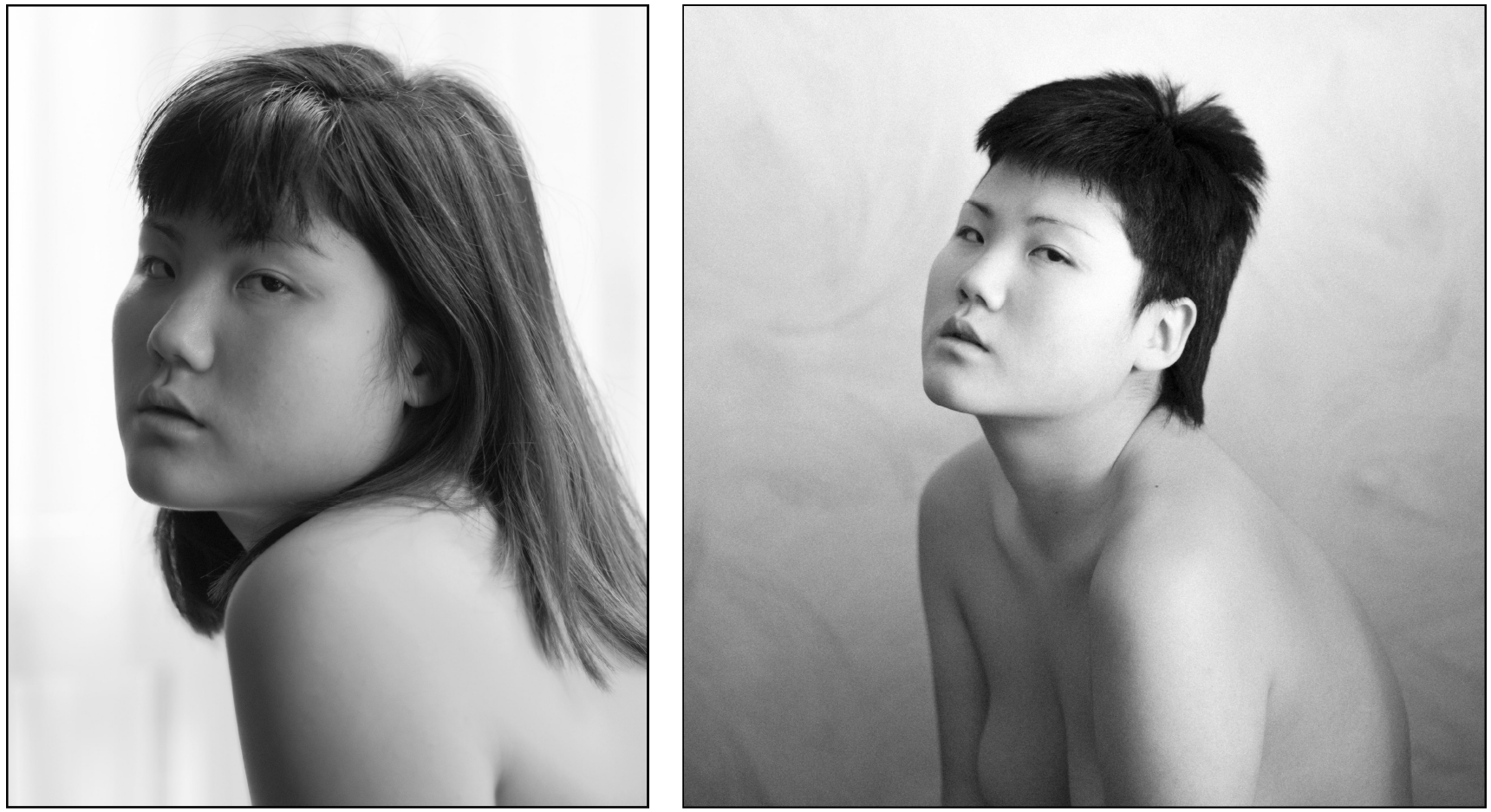
回 (huí) translates as circle, time, to go back, to turn around and/or to answer; and 家 (jiā) as home and/or family. Together they mean to go back home. Developed between The Basque country and Madrid at the three households where Yun Ping grew, 回家 (huí jiā) is a project (2017- Ongoing) that documents his identity search processes as an adopted, trans, and Chinese person. An essay about life itself that discusses topics such as passage of time, change and the emotions that arise in the midst of it; self-knowledge, desire and sexuality; uprooting, sadness, intimacy and loneliness.
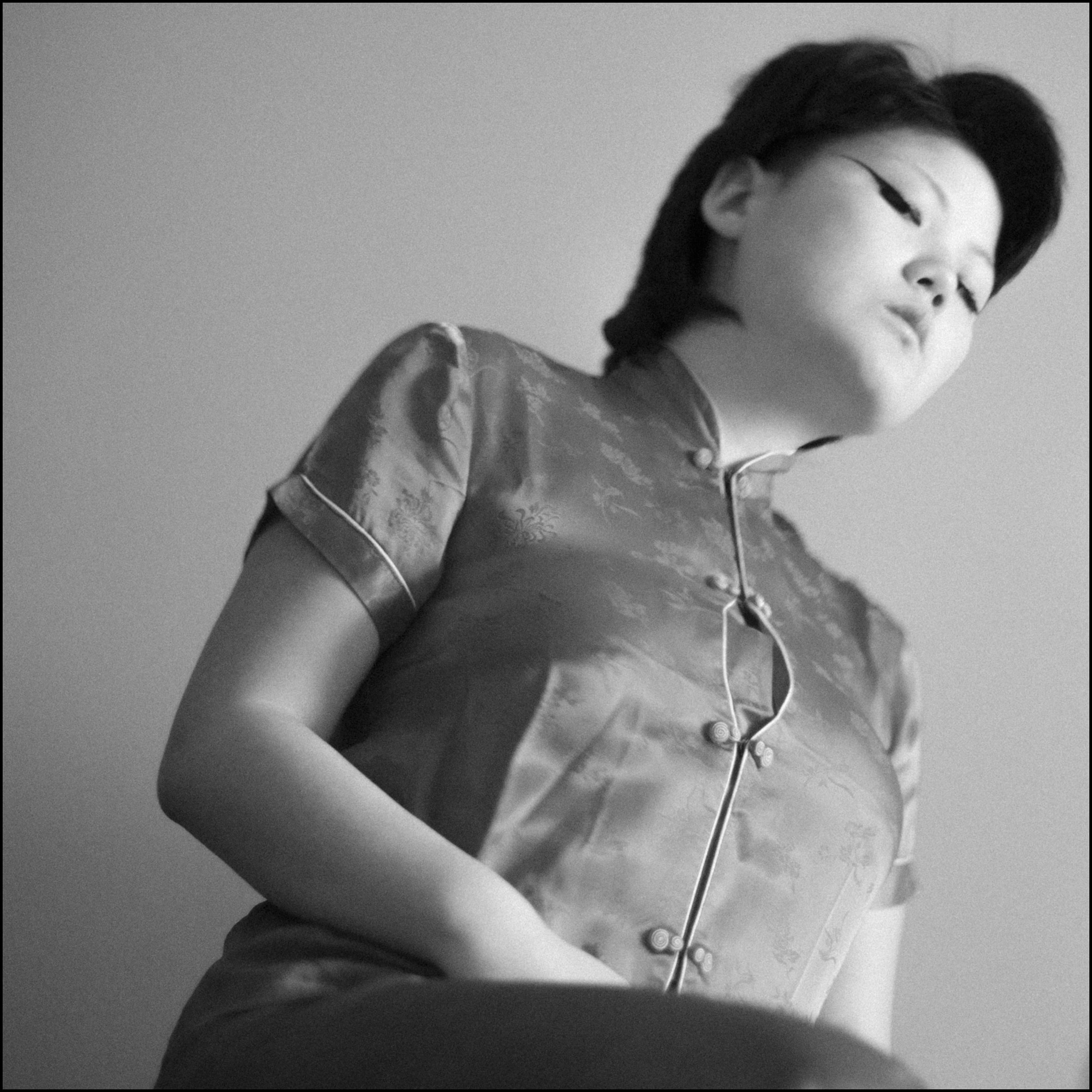
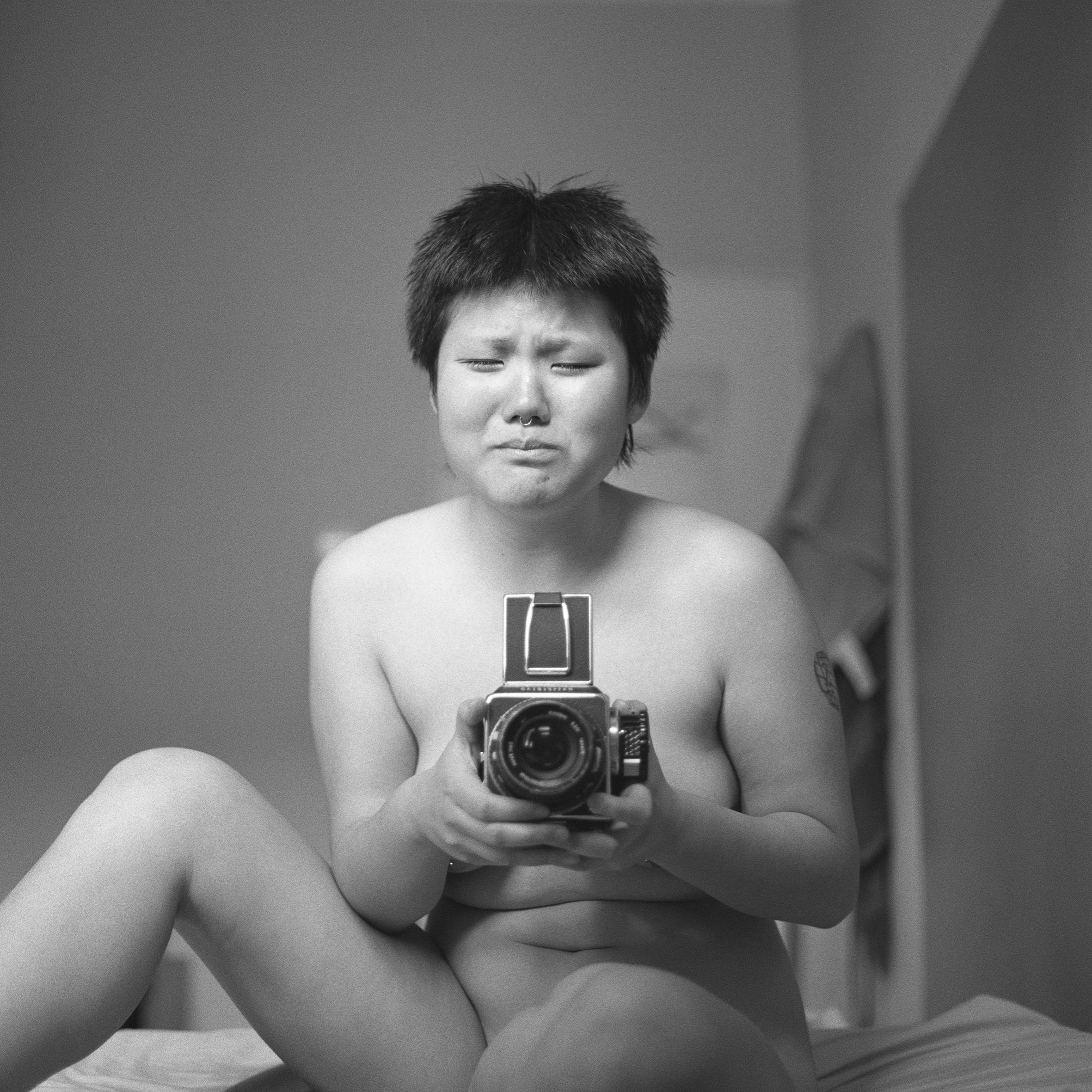
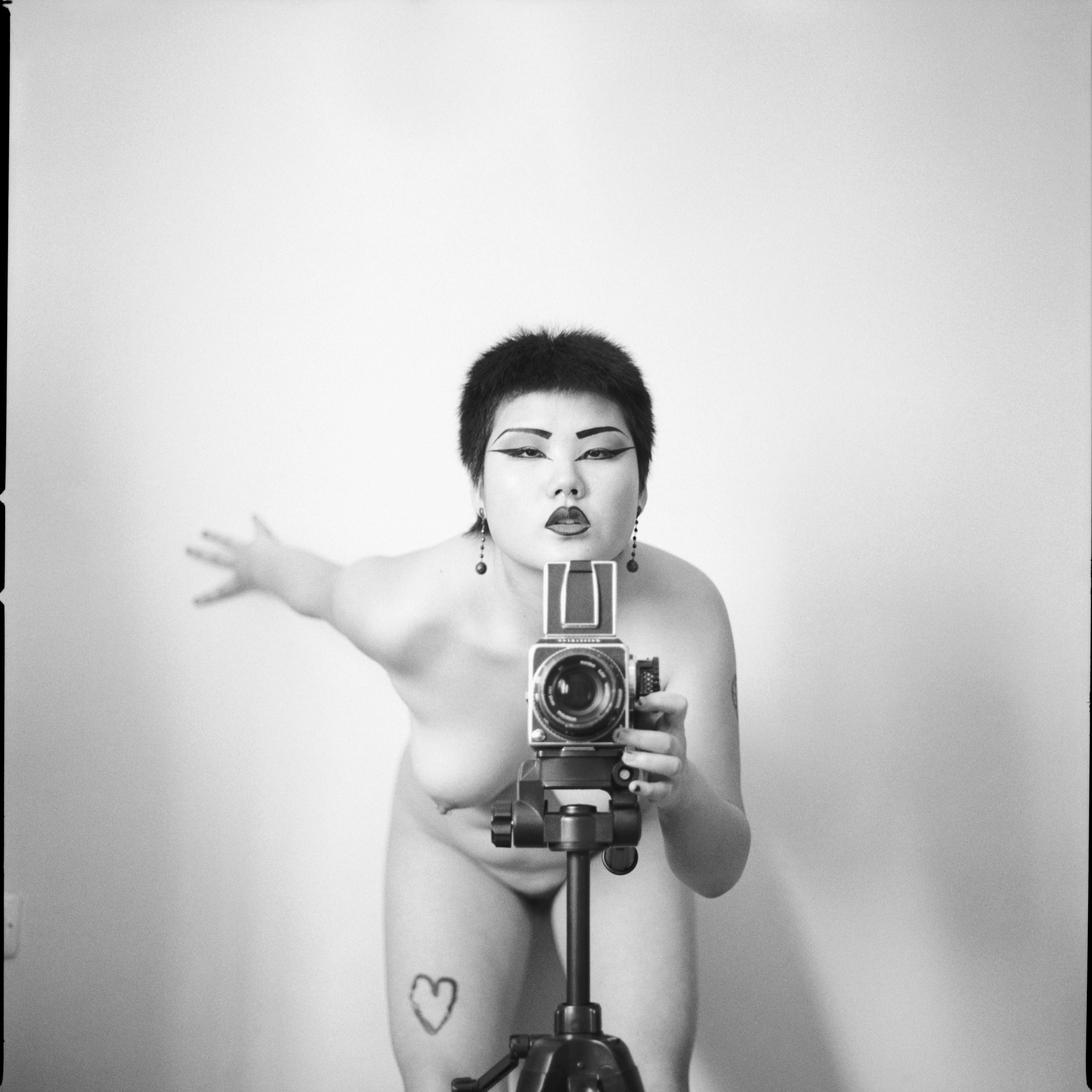
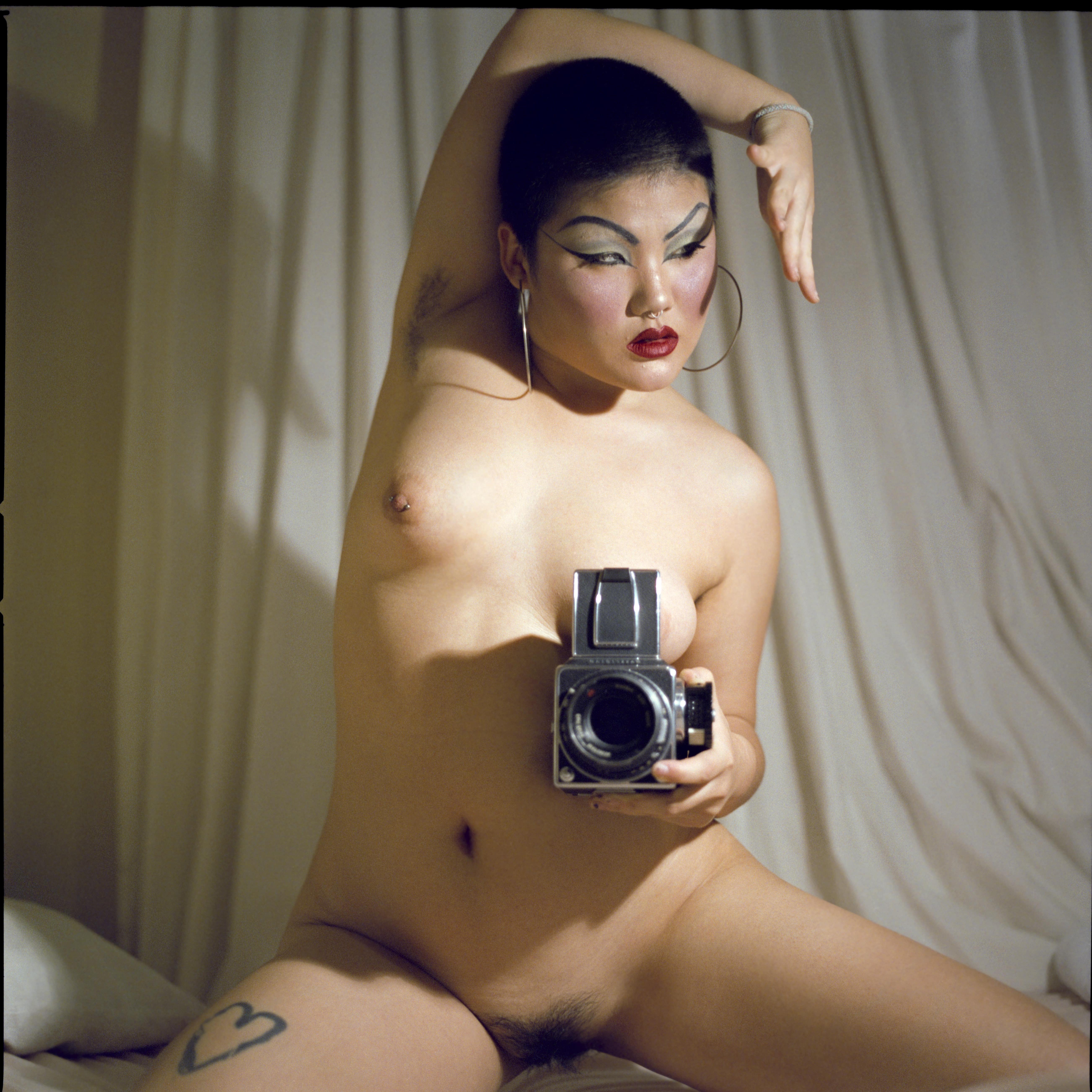
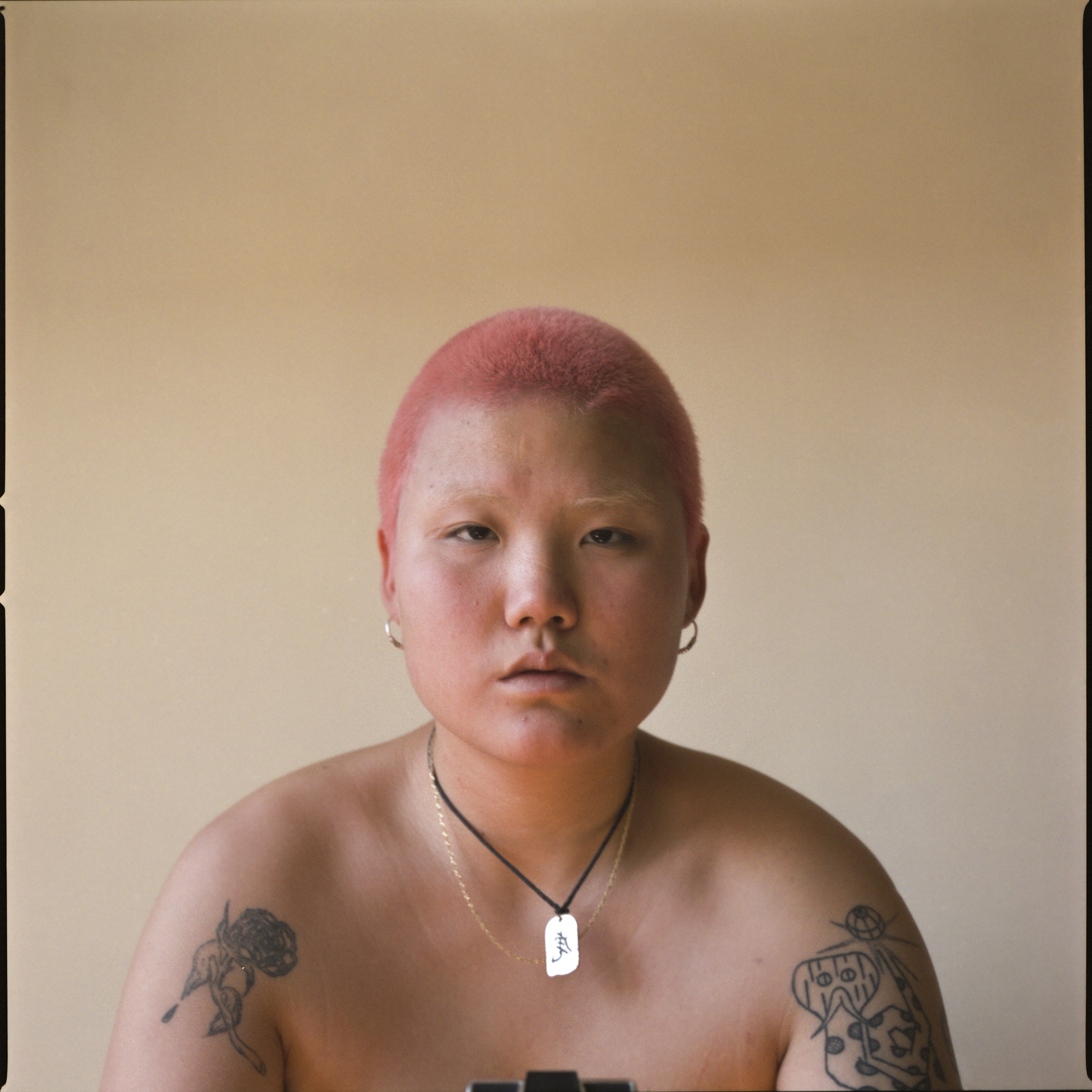
Who is the real me? Who am I hiding under all these layers? Where am I from? Where do I come from? Who do I come from? Am I from here or from there? Yun Ping or Yaiza Cabrera? Man or woman? Before or after? Masculinity or femininity? Drag or out of drag? Face or mask? Transsexualization or Cisheteronorm? Light or dark? Beginning or end? Life or death?
In the search for the answer to these questions, Yun Ping transitions from female to male while developing his drag character Yasia. In this identity twist, the issue becomes about itself, it does no longer matter if it was the chicken who came before the egg or viceversa, or if it is the artist who creates the work or the work who creates the artist, because in the end, we know that there is no cause without consequence. As a result, we get the new form: the queer, the diaspora.
The work challenges the limits of the self through the creation and development of the character that inhabits femininity through a transmasculine body; that is undone to be made again, that goes to the place of origin.
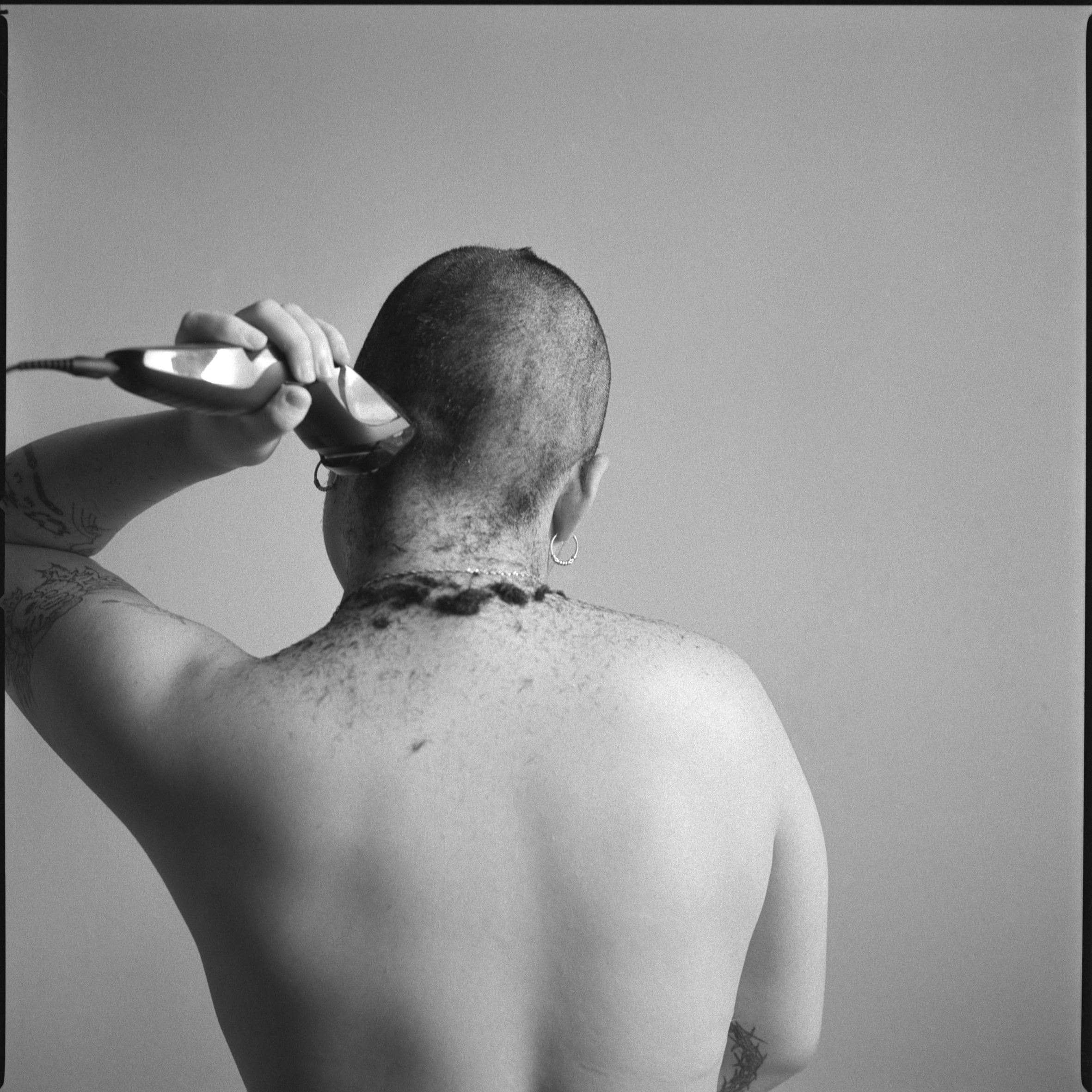
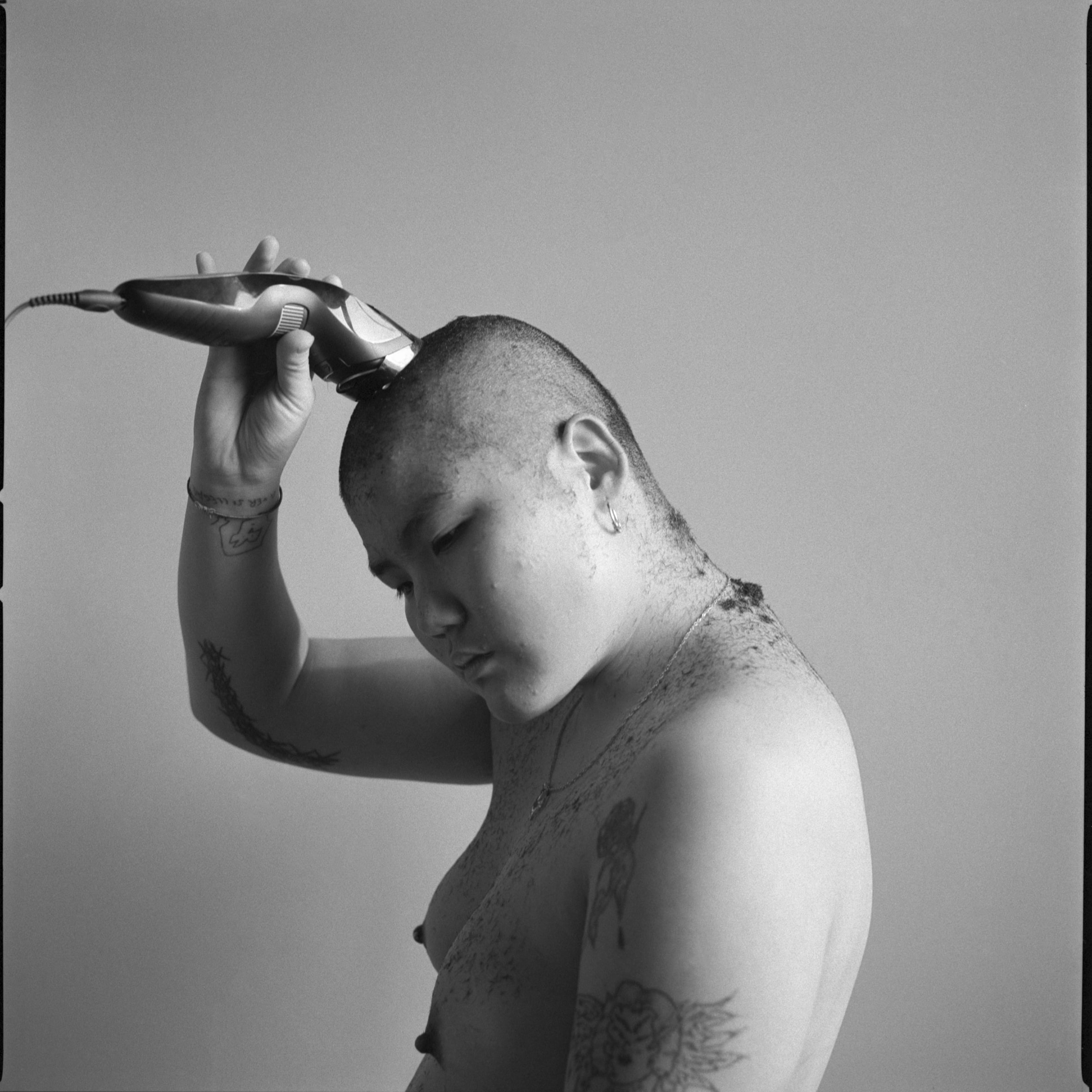
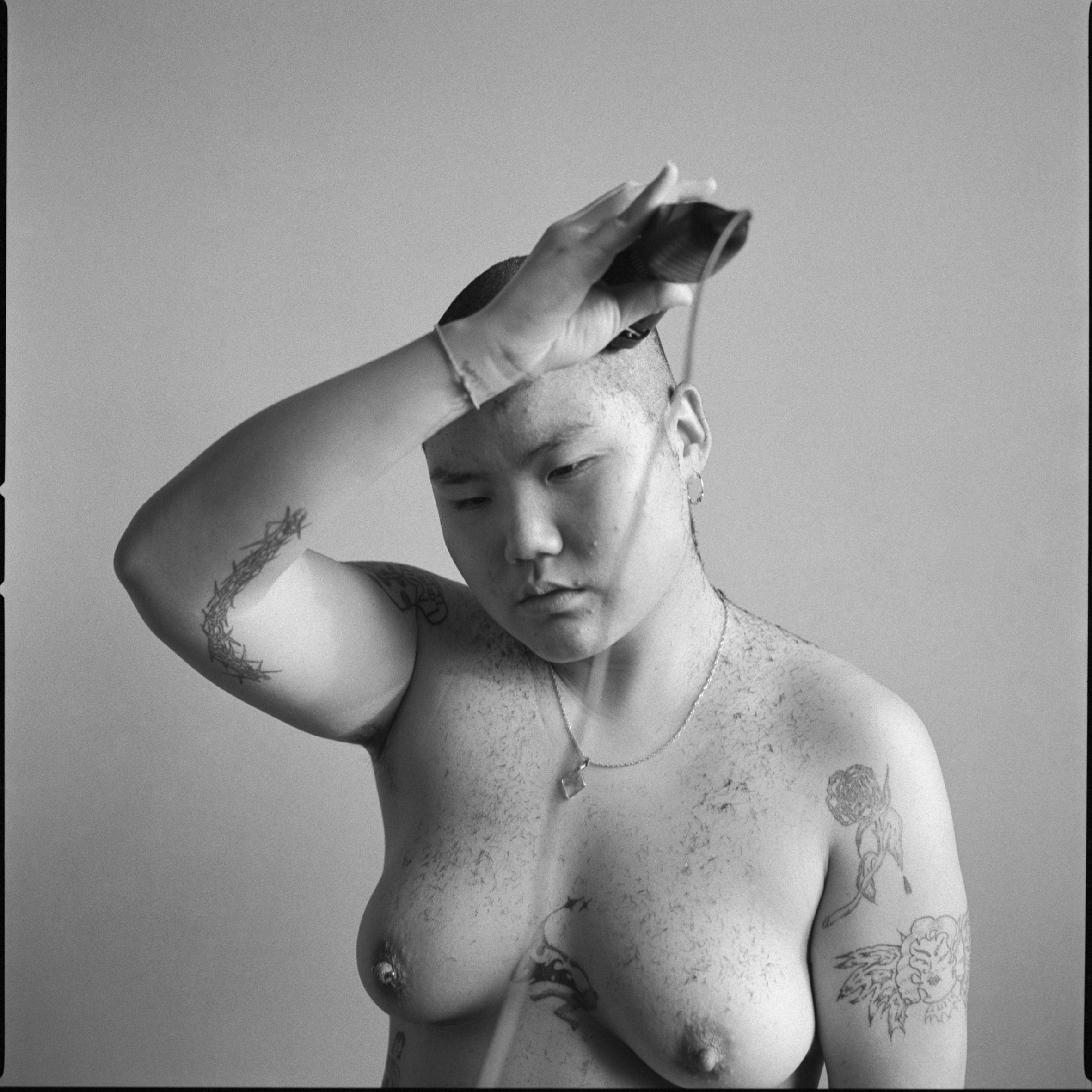
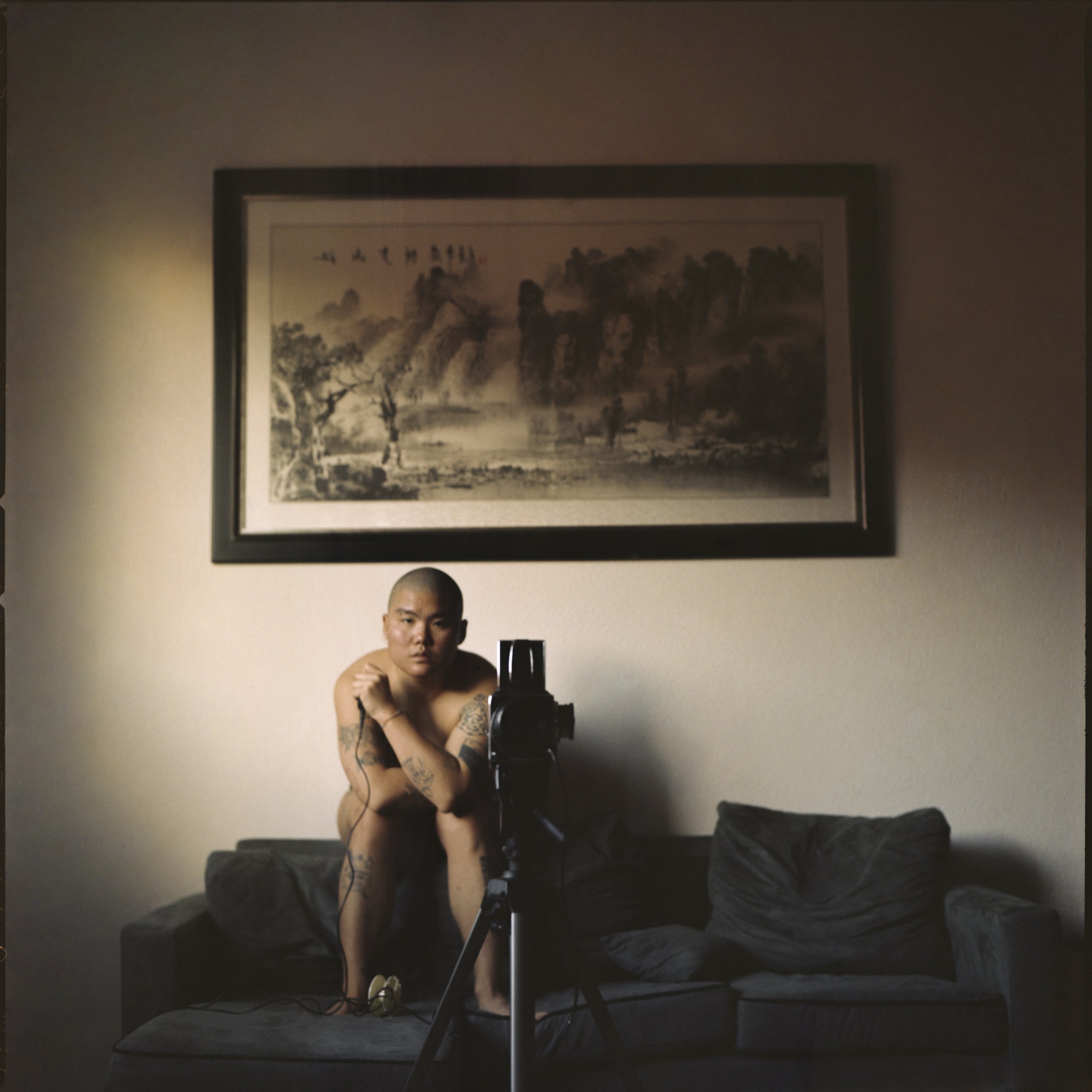
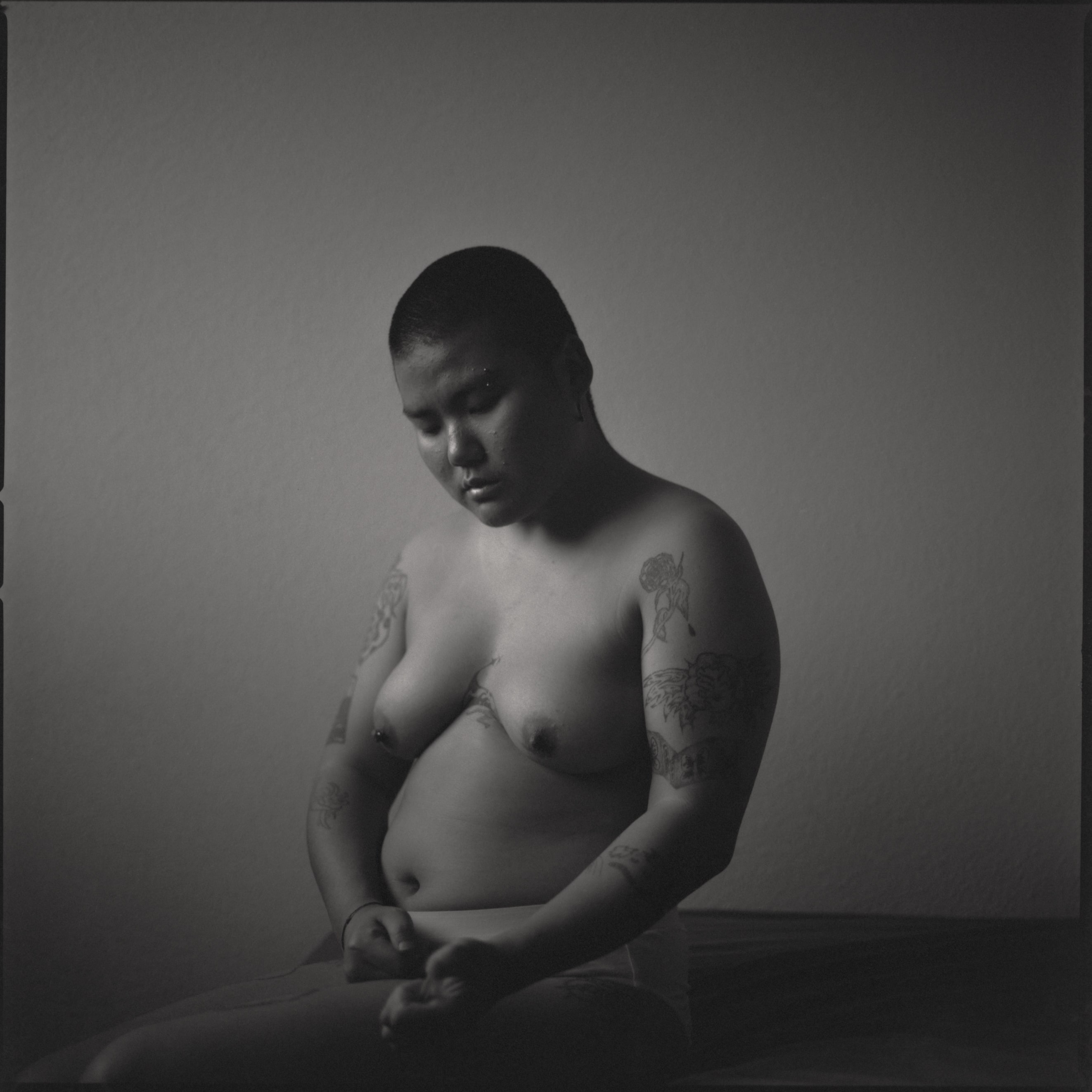

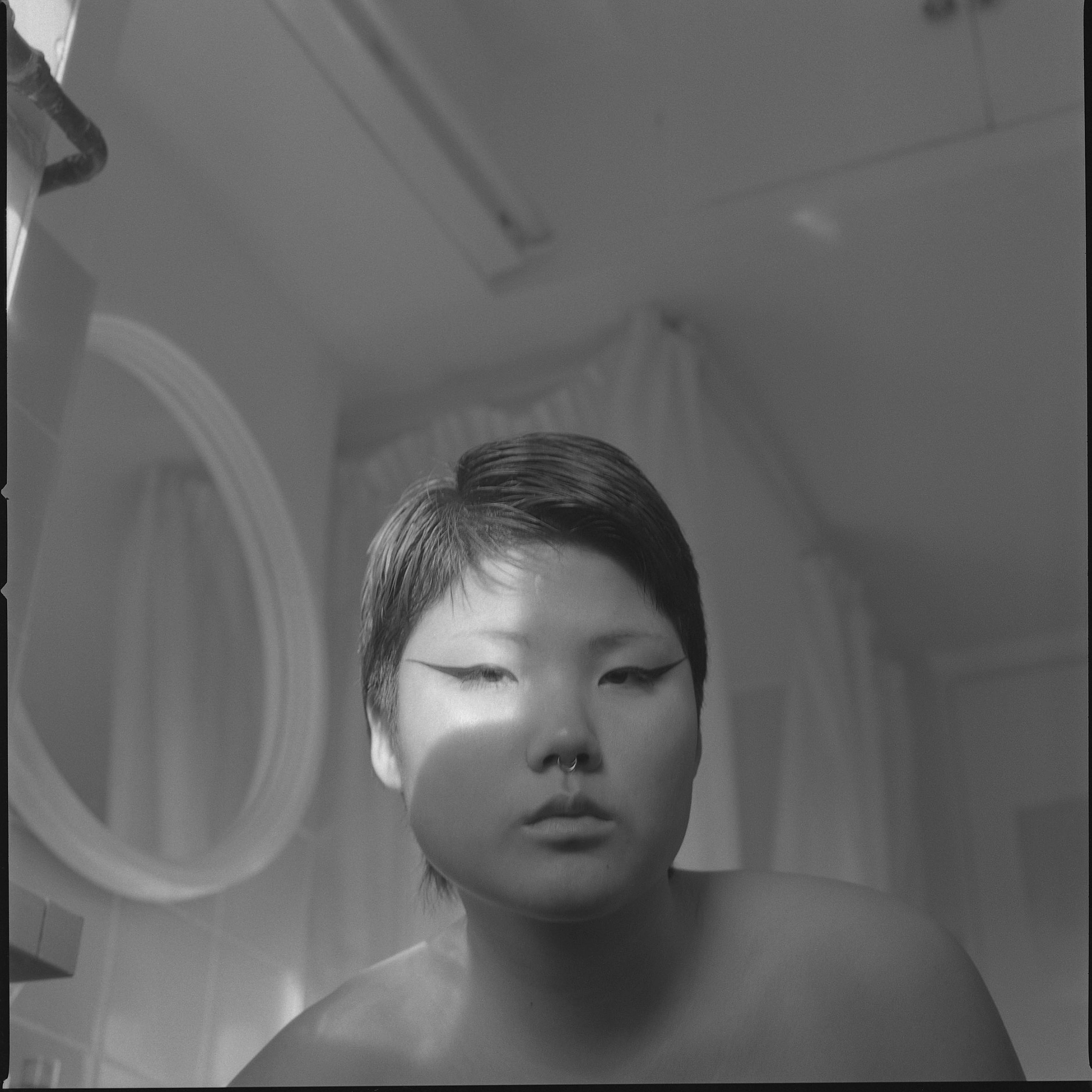
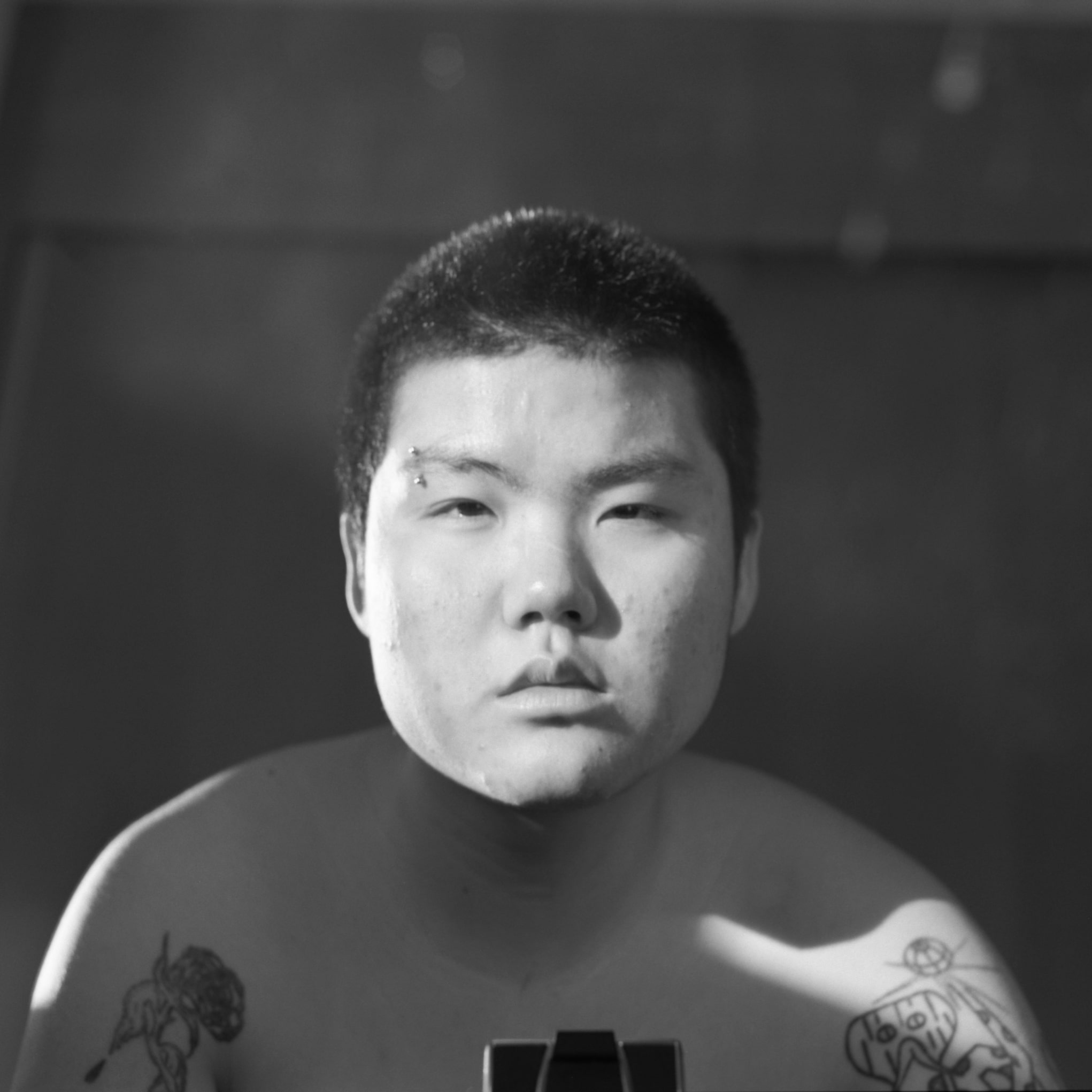
The most beautiful part of your body is where it’s headed – Ocean Vuong, 2016


The Passion of The Cut Sleeve 断袖之癖 (2022) is a photographic series inspired by the Chinese legend of the same name, which has its origins in the Han dynasty. This narrative revolves around a romantic tale between Emperor Ai of Han and Dong Xian, representing one of the earliest detailed portrayals of same-sex relationships in Chinese tradition. At the heart of this legend is a poignant moment when, one afternoon, after their customary nap together, Emperor Ai woke up to find Dong Xian sleeping on his sleeve. In a tender gesture to allow Dong to continue resting peacefully, the Emperor chose to cut off his own sleeve rather than disturb his slumber.
This act of sleeve-cutting later became a symbol of love and devotion between same-sex partners. Throughout different dynasties, “Cut Sleeve” (断袖 duàn xiù) became one of the most common euphemisms for homosexuality. During the Ming and Qing dynasties, authors titled their erotic homosexual stories as “Records of the Cut Sleeve,” while the police used the term “predilection of the cut sleeve” to describe homosexual behavior. Although the term still occasionally appears, it has gradually fallen out of common usage over time.
The Passion of The Cut Sleeve 断袖之癖 serves as a tribute to the history and culture of same-sex affection in Chinese tradition.
“To my fellow Queer Asian diasporas”.
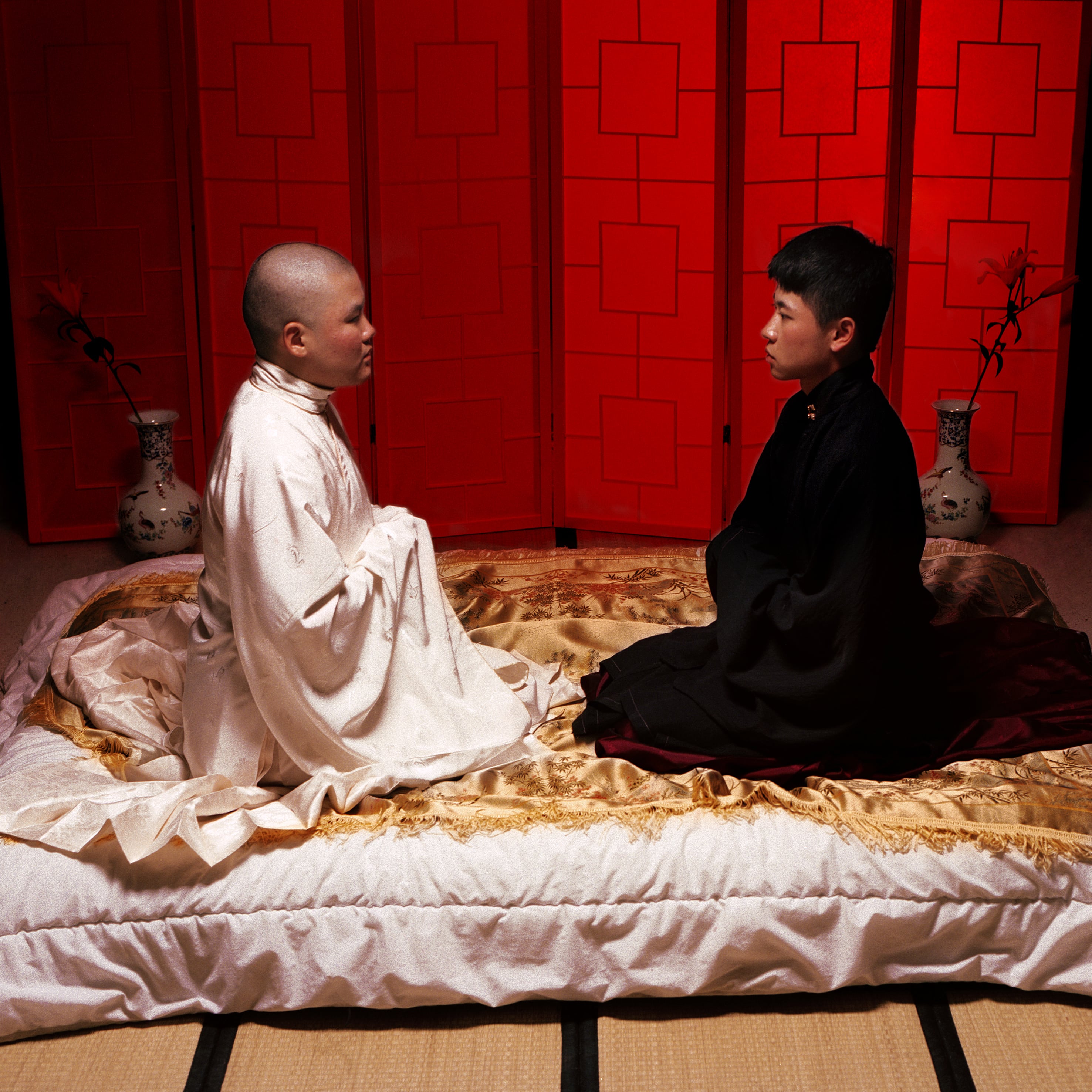
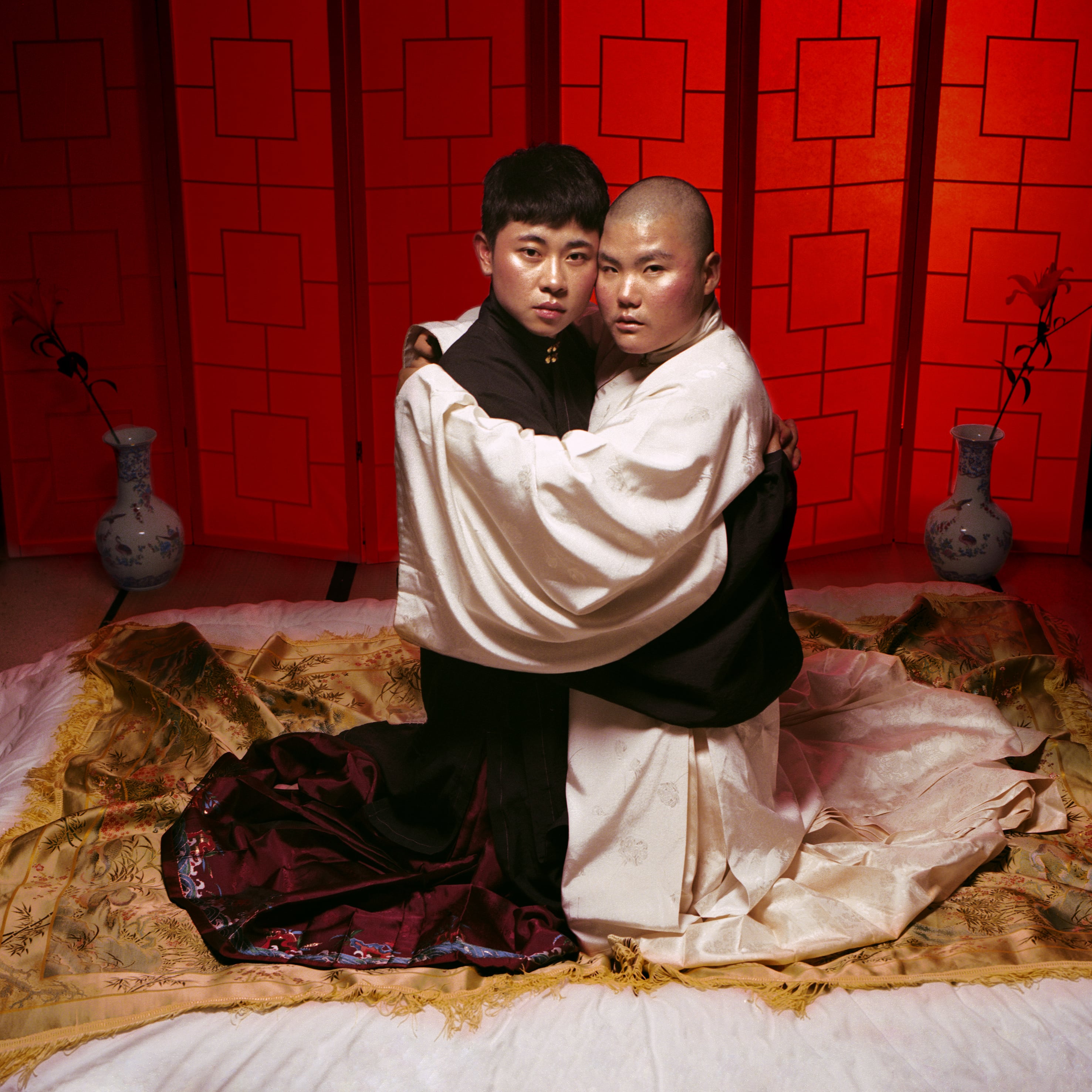




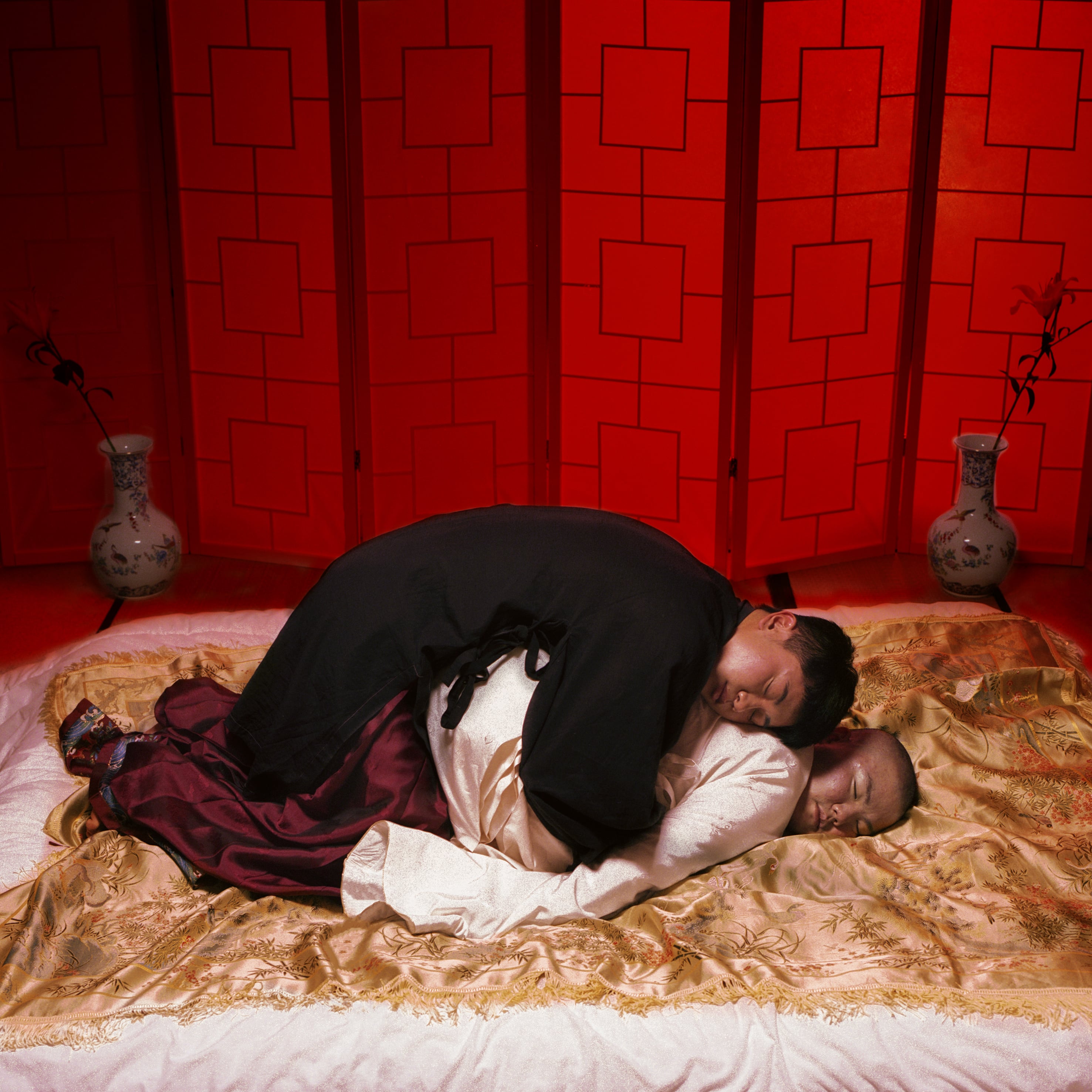
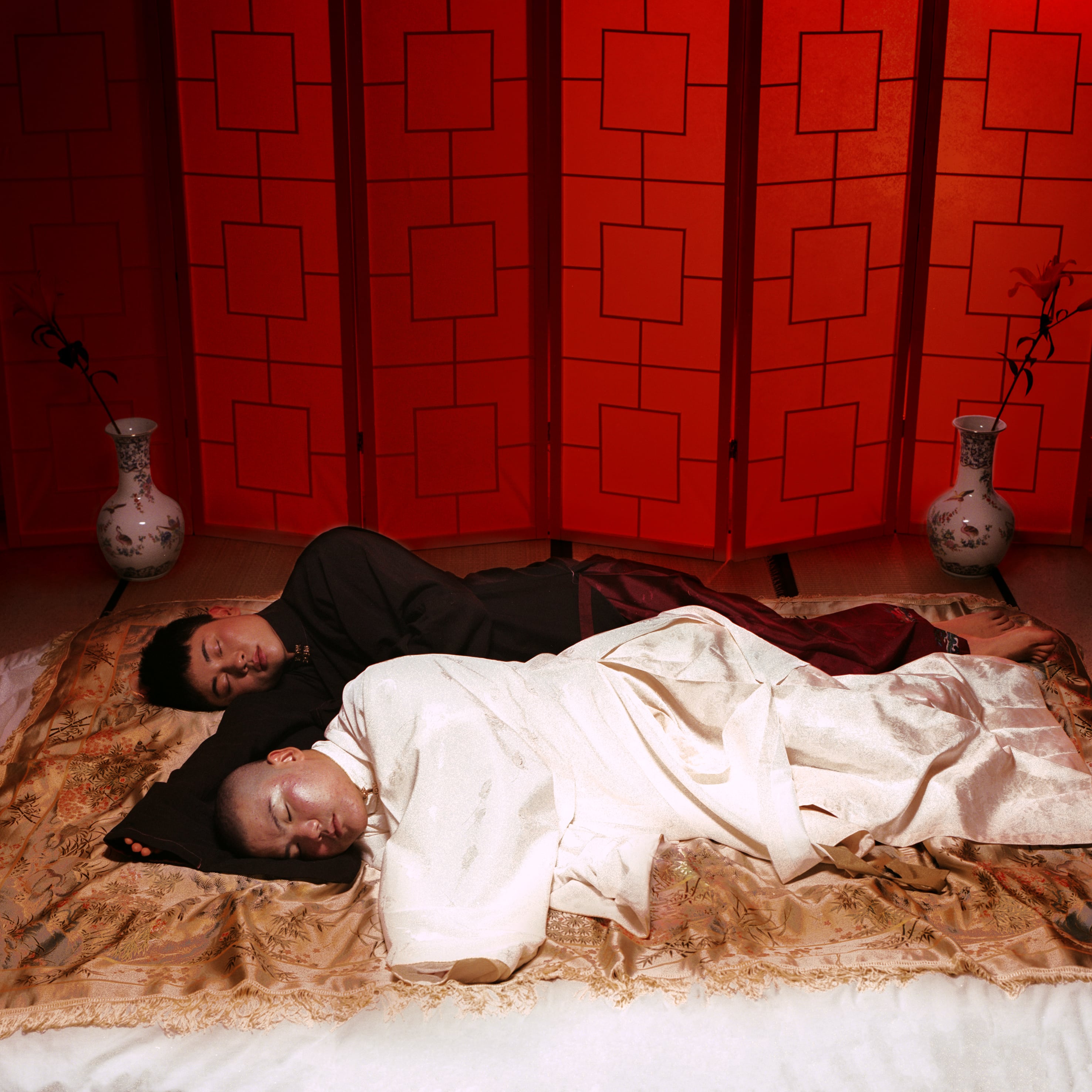
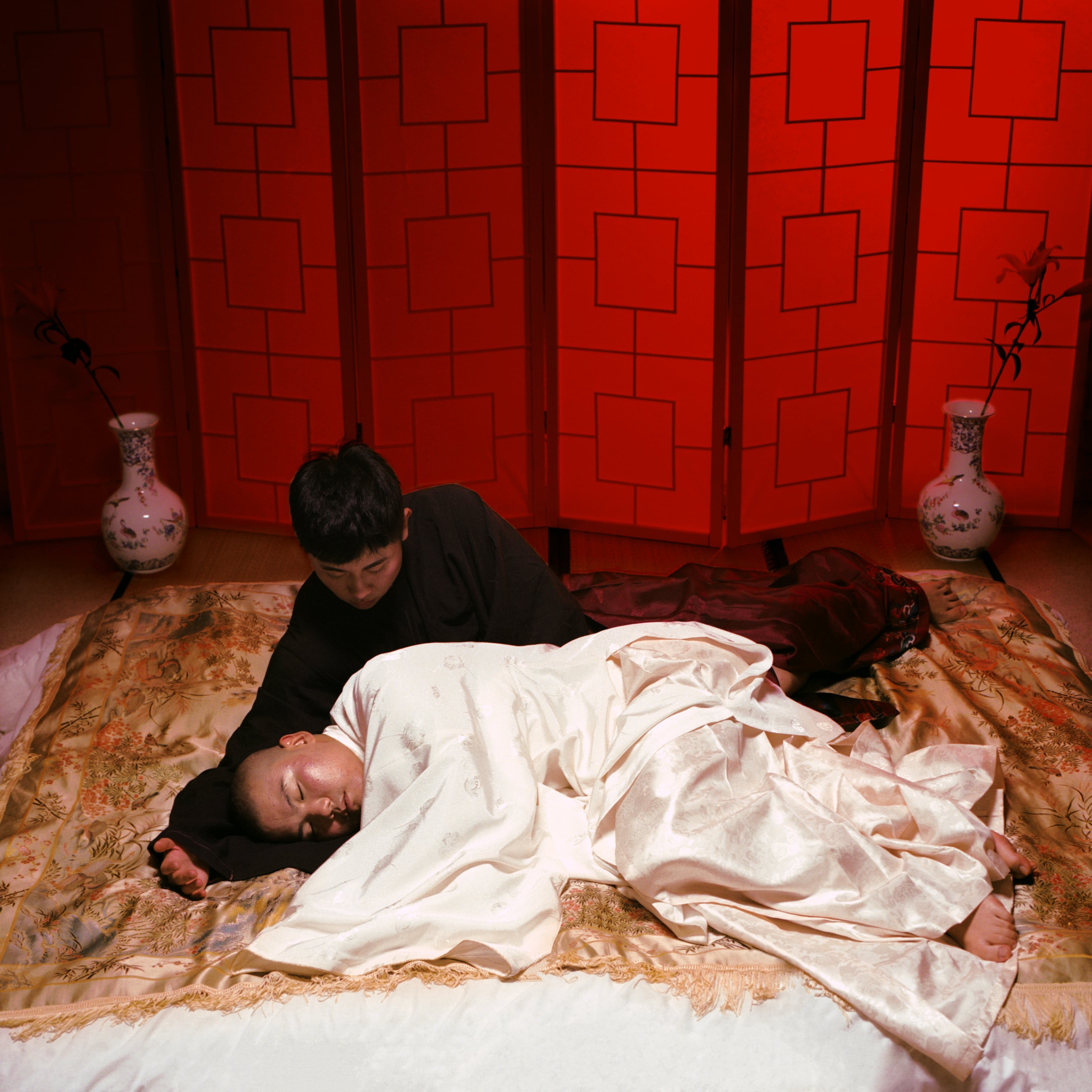


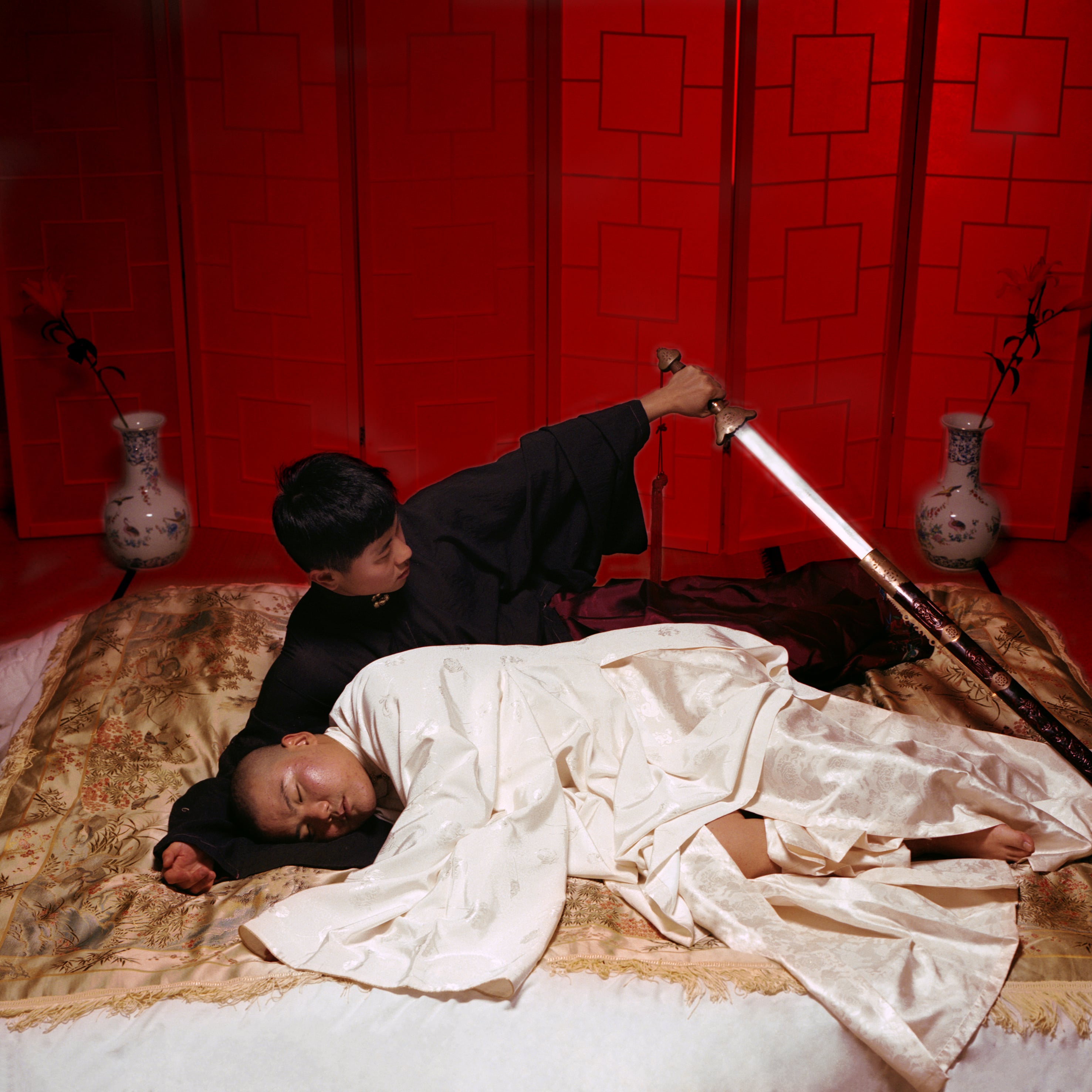
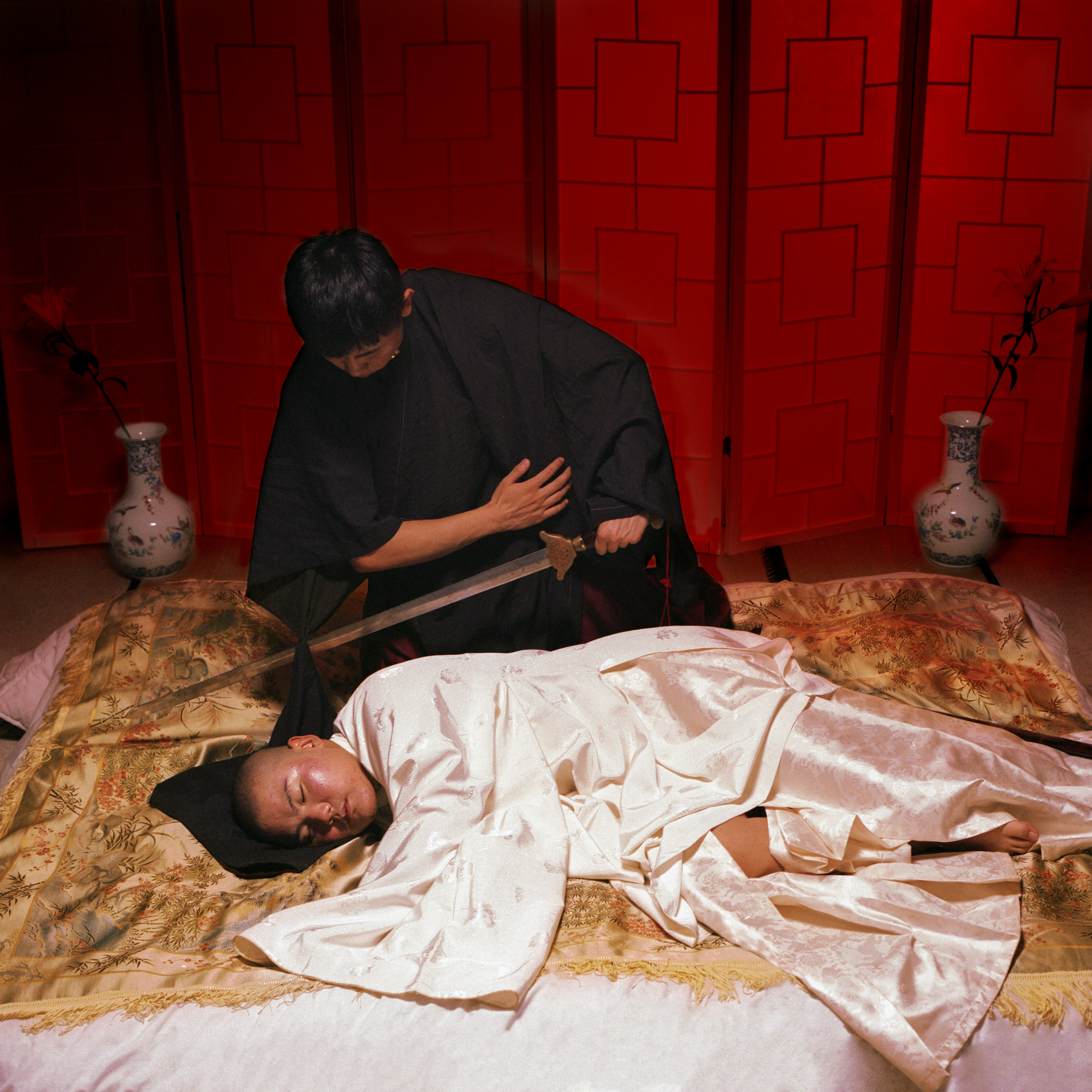

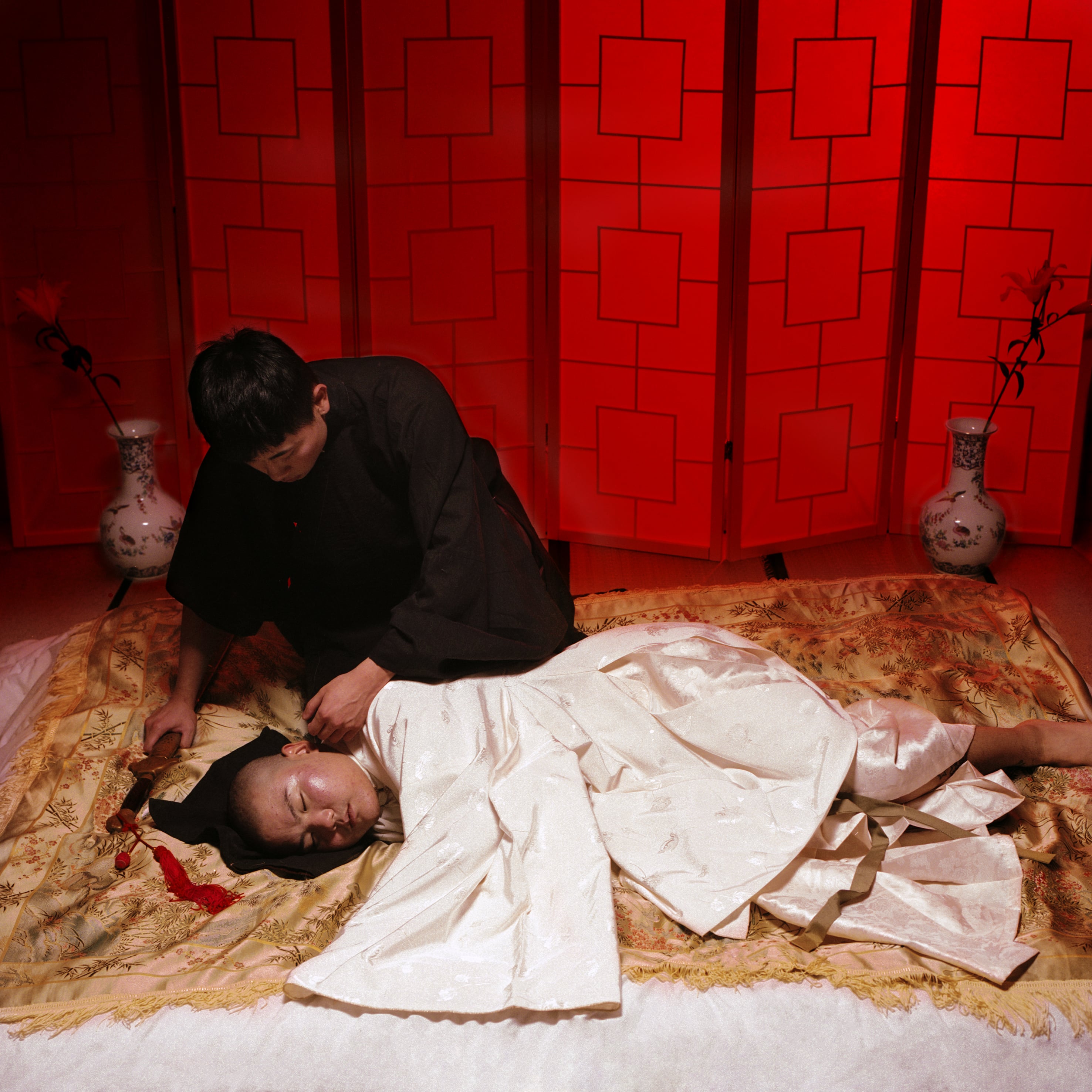
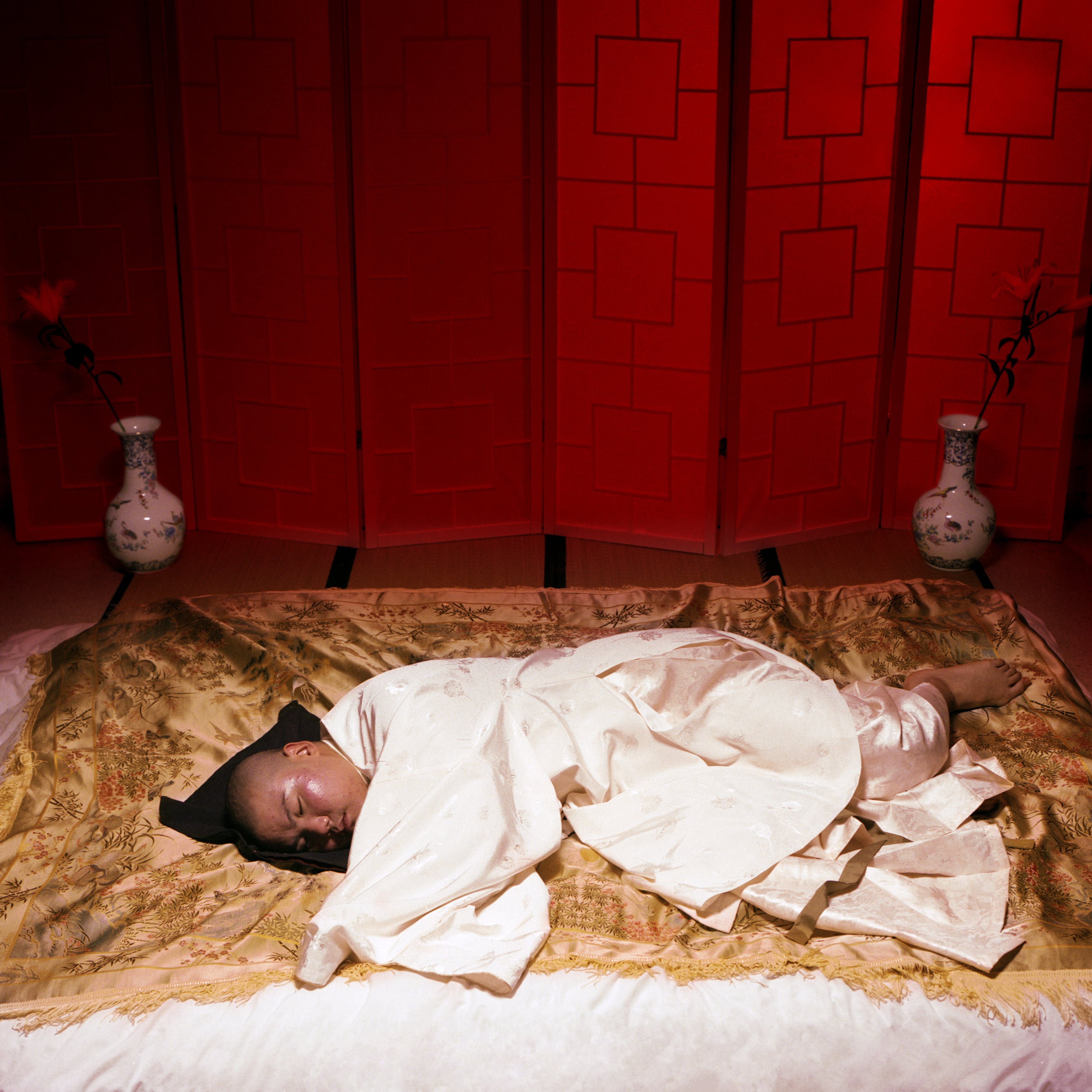
The project also finds inspiration in more recent works, as it is influenced by the 2019 short film Kiss of the Rabbit God by Andrew Thomas Huang. This film centers around a Chinese-American young man grappling with issues related to his cultural identity and a sense of displacement. His journey unfolds as he encounters the enigmatic and alluring Rabbit God, a figure rooted in Chinese mythology traditionally associated with fertility and good fortune. In this cinematic piece, the Rabbit God assumes a contemporary and sensual identity, blurring the boundaries between the spiritual and the erotic. As the protagonist becomes increasingly captivated by the Rabbit God, he embarks on a surreal and sensuous exploration of his own desires and cultural heritage.
Yun Ping wish to add the following: “I’m forever thankful to everyone who made this project possible; to the models Luka Jinfei, Sisi and Alejandro, to all the team who kept an eye on each and every detail, to Pablo as the assistant, my classmate Sara as the photo assistant, Andrea as the costume assistant and Andre as the MUAH. To my friend, ChenZhen 陈臻 for sharing the knowledge of our culture so kindly, to Sara for showing me Kiss of the Rabbit God and all the infinite conversations at dawn and María for lending me her tatami”.
Yun Ping
Born in 1998, Hubei, China.
Currently lives and works in Madrid, Spain.
09.09.2023
Yun Ping’s 昀平 interest in the medium of photography evolved in parallel with his identity search processes. His creative narrative centers on the significance of self-expression through self-portraits and portraiture. Blurring the lines between photography and performance, his body of work delves into the concept of belonging in connection with the human body, physical spaces, and familial bonds.
Yun Ping studied photography at Artediez school and is a member of El Local, a space for contemporary photography at the centre of Madrid.
Follow Yun Ping’s work via Instagram.